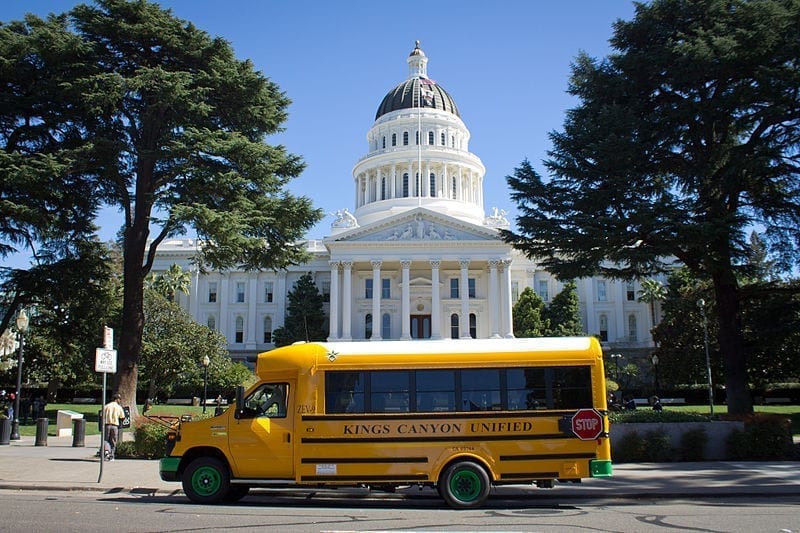EarthJustice’s Right to Zero environmental campaign in California is pushing for zero-emissions technologies, but those don’t solve the underlying problem.
The environmental law organization EarthJustice is currently campaigning in California for the Right to Zero. The idea is to push for policies that change the way Californians use energy to transport themselves and their goods. Technology is already in place to build electric vehicles and produce energy from renewables. If you acknowledge the reality of our changing climate and the health problems that plague residents of California’s most polluted corridors, the Right to Zero campaign seems like a no-brainer.
But is it?
There is no doubt that we must move away from fossil fuels. California’s emission standards and policies like Cap-and-Trade are models for other states to consider as we begin to realize the effects of the mess we’ve gotten ourselves into. However, even these practices, which many perceive as radical and inconvenient, should be considered only as a starting point. Instead, Right to Zero seems to view these means as an end in itself.
Everyone loves the idea of having their organic, gluten-free cake with non-hydrogenated frosting and eating it, too. Too often, efforts to create an environmentally friendly lifestyle are merely an attempt to power the industrial status quo with “green” energy. While the Right to Zero agenda of producing no emissions at street level is a worthy goal, it won’t solve the underlying problem of industrial culture.
Unfortunately, industrial culture as we know it is possible only when fueled by a bountiful supply of cheap, concentrated energy. We’ve been working our way through such a glut for the last 150 years or so. But as fossil fuels become harder and more energetically expensive to obtain, and the effects of a century and a half of burning them come home to roost, we need a better plan than just turning off the coal plants and rehooking the grid wires to wind farms. We need a completely new vision.
For instance, let’s stop pretending that hooking everything up to the electrical grid will ever be energy efficient. No matter how electricity is generated, a surprising amount is lost between the power plant and the final end use. Thermodynamic limits mean that only a fraction of the potential energy in the material we burn to create electricity actually makes it onto the grid in the first place. Granted, this matters more when we’re burning coal than when we’re collecting sunlight, but diffuse and fickle sunlight isn’t up to powering all of our energy wants, either. Once the power is sent through the wires, even more is lost as heat every step of the way.
Lost in Transmission: How much energy do we lose from plant to plug? Posted by Inside Energy.
One way to make better use of energy is to create it much closer to the end user. This means decentralizing production and empowering individual households to create the energy they need. Of course, it’s hard to fuel a modern, electricity-hungry home only on the power the household can create for itself with local renewables. That’s why an honest reckoning and reduction our needs and wants to more manageable levels for a lower energy budget is the first step toward true sustainability. This does not mean buying new cars that are built in power-sucking factories so that we can plug them into the grid and fuel them with coal burned miles away (and probably in a poorer neighborhood). These moves only outsource our pollution to somewhere else.
Of course, the Reagan administration sold us on the idea that we didn’t have to suffer through all of this hippy-dippy efficiency stuff. And except for local campaigns like Right to Zero, the Trump administration is pounding nails in environmentalism’s upcycled wooden coffin. The challenge we face is daunting. It’s hard to fight both businesses and the government in order to save the world for ourselves and our coal-rolling neighbors. That’s one reason why green veneers, like Right to Zero, which assure us we can do so without giving up any of our modern comforts, tempt us so easily. Don’t be seduced, though. The fight should be for a much bigger prize.


Join the conversation!